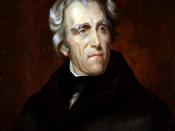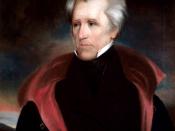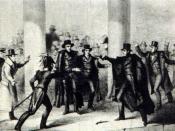Many of today's democratic practices began in ancient Athens during the fifth century BC. Athenian men discussed public issues and passed laws as members of the assembly. They elected officials by secret ballot and served on public committees and juries (Bowman, 2008). Each man joined the army or navy as a matter of civic duty (Wamsley & Wolf, 2006). Historians estimate that a third of all Athenian men took time out from their jobs and business activities each year to serve their city. This example of direct democracy has never been equaled.
Today we have many examples of democratic governments. Each of these modern governments lies on a scale somewhere between direct democracy and socialism (Gawthrop, 2008). Most are some form of indirect democracy. The United States is an indirect democracy with presidential leadership. We elect our President and representatives to help govern the country and make laws to protect our interests.
When we feel they are not accomplishing this, we have the power and privilege of electing new representatives.
Canada and England are two countries that have an indirect democracy with a parliamentary form of leadership (Box, 2002). Both governments have a Prime Minister and representatives that help make the laws and govern the interests of those they represent. England has a King and a Queen; however, they are in title only, and the government is directed by the Prime Minister (Bowman, 2008).
Many of today's democratic practices began in ancient Athens in the V century BC. Men Athenians discuss public issues and the laws enacted as Assembly members. They are elected officials, secret ballot, and serves on the boards of public and jury (Bowman, 2008). Every man in the army or navy as a matter of civic duty (Wamsley & Wolf, 2006). Historians estimate that one third...


